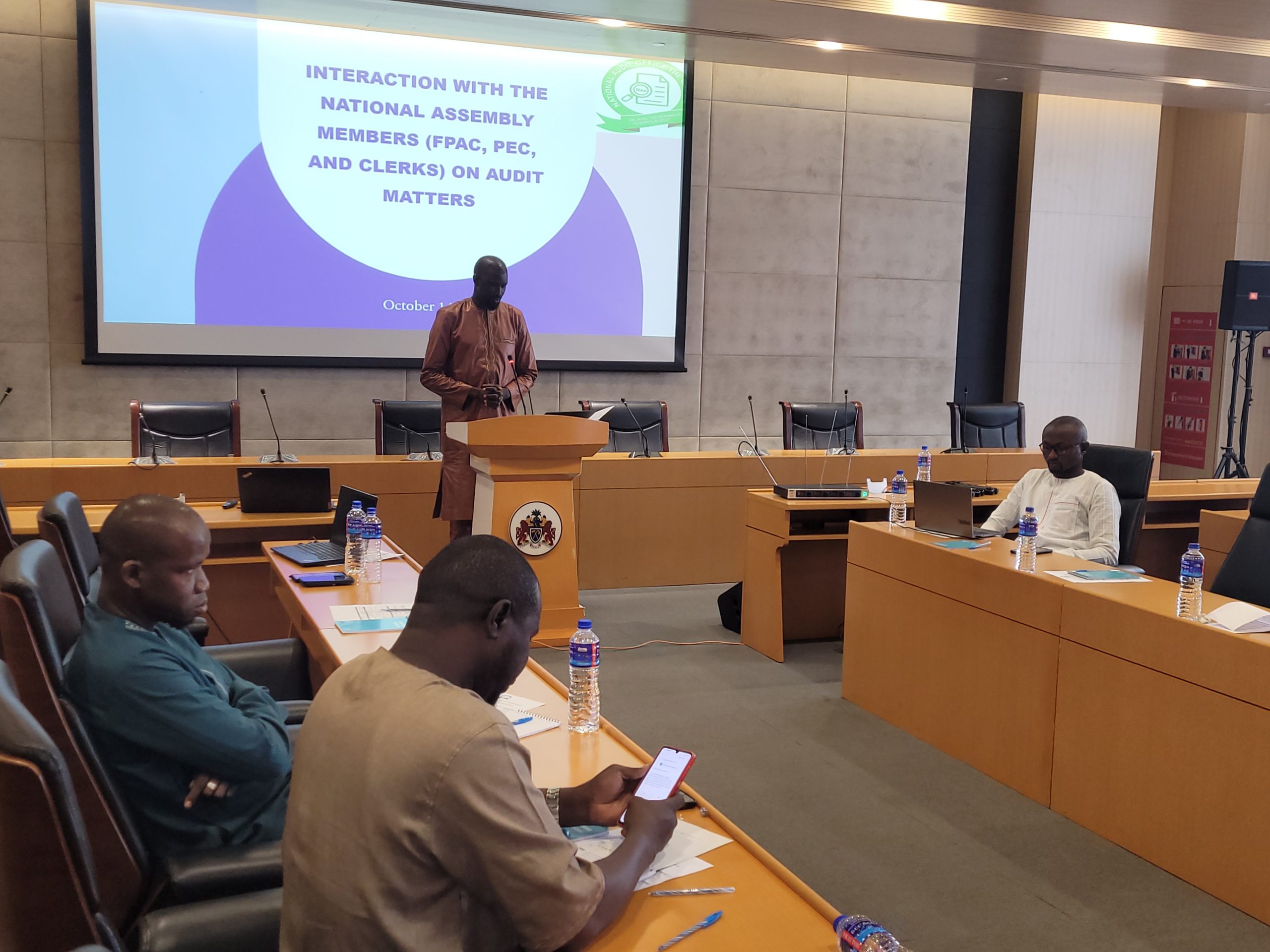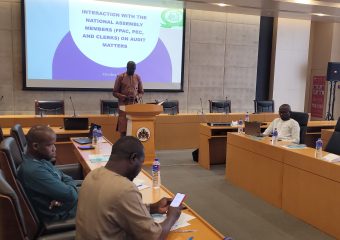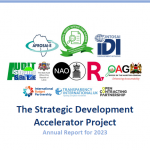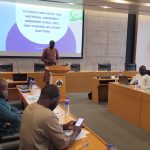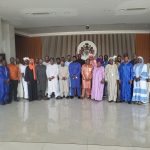NAO Interacts with National Assembly Members (FPAC and PEC) and Clerks on Audit Matters
The National Audit Office on October 14th, 2023 held another interactive session with the Members of the Finance and Public Accounts Committee (FPAC), the Public Enterprises Committee (PEC), and Committee Clerks at the Sir Dawda Kairaba Jawara International Conference Centre, to discuss the audit reports, work of the NAO and related matters.
During his opening remarks, Auditor General (Modou Ceesay) reiterated the crucial link between the NAO and the National Assembly and vice versa; and called for continuous dialogue between the two institutions to render timely support and intervention as relates to the functions and responsibilities of both the NAO and the NA.
The interaction covered:
- Overview of the recent developments within the operations of the NAO (such as new technical units and functions created to strategize on overall service delivery);
- Summary of the planned audits for the 2023 financial year
- Challenges faced by NAO in its service delivery and general operational activities
- Overview of the NAO Amendment Bill (2023) and draft budget for 2024 (including upcoming plans of the office)
- Review of good practices across the globe on Strengthening SAIs’ Relationship with Parliaments
- Feedback session from the FPAC and PEC on how the audit reports can be enhanced to ease their interaction and understanding as well as NAO’s overall service delivery and its impact on the work of the National Assembly.
In the deliberations, the Members and their staff commended the Auditor General and his team for their unwavering support of the FPAC and that the presence of NAO’s contribution to the work of the FPAC is highly visible and felt by the members.
On some of the challenges highlighted such as lack of auditees’ response to audit reports – the NAMs called for sanctions to be levied on defaulters – the AG shared that this is covered in the proposed NAO Amendment Bill (2023) which is currently at Cabinet level for review and onward tabling at the National Assembly.
The NAMs also highlighted the need for the outsourcing policy of audits to private audit firms to be thoroughly reviewed so that the parties are clear and abide by terms and conditions and for NAO to always assess the quality of the audits.
The Auditor General suggested a review of the financial reporting year for the possibility of moving the financial year for government and parastatals so that there will be space between the two to allow for proper audit planning, execution, and reporting.
Other general recommendations highlighted during the deliberations were:
- Need for mechanisms to be put in place for the tracking of implementation of FPAC Resolutions and NAO reports;
- NAO to consider submitting audit reports by sector so that at any given point, the FPAC will be reviewing the Annual Activity Reports and Audited Financial Statements of public institutions within the sector. This will make its reporting flow sequentially.
- NAO to consider providing a summary of the Management Letter (ML) points, especially for the consolidated audit report of the GoTG Financial Statements.
- NAO to ensure audit recommendations adequately address the reported findings.
- The NA administration to review the ToR and process of appointing Subject Matter Specialists to ensure they deliver as expected.
- The National Assembly will strengthen its collaboration with the Police and the AG Chambers on fraud-related matters for advice and necessary action.
Overall, the NAMs assured the gathering that going forward, priority will be given to the audit reports to ensure timely discussion and action of submitted reports in the next Ordinary Session sitting of the National Assembly, and that all feasible support will be accorded to the NAO for it to effectively deliver on its mandate.
The NAMs and their technical staff reiterated the need for continuous technical support of the AG and his team and buttressed the need to strengthen the collaboration between the two important institutions in the country’s accountability cycle and the Public Finance Management system.

